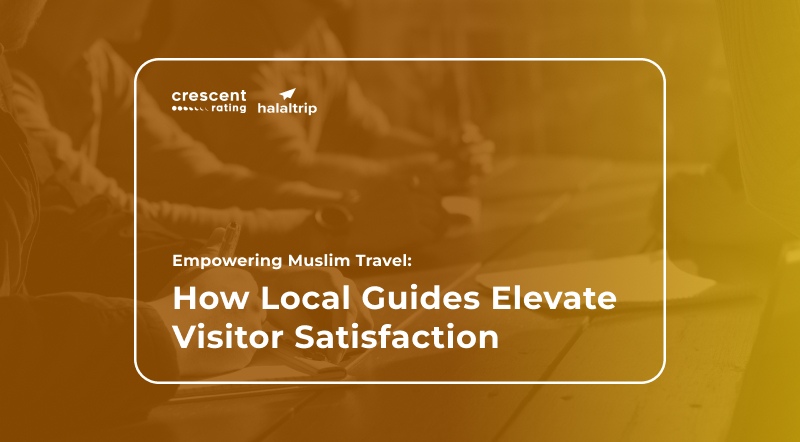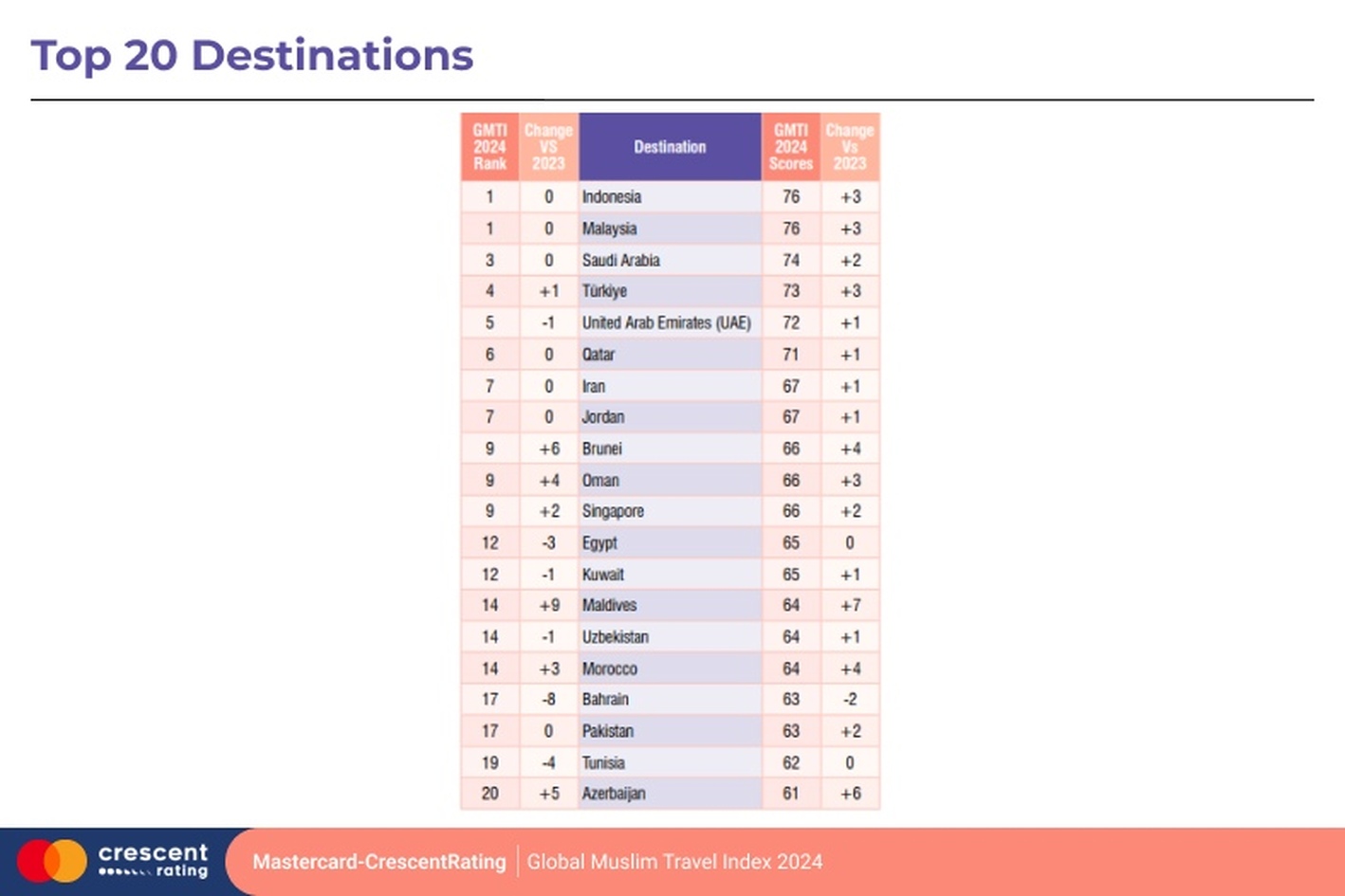
The halal travel industry continues to evolve, fueled by the increasing demand for authentic, culturally enriching, and faith-aligned experiences. According to the Global Muslim Travel Index (GMTI) 2024, destinations worldwide are demonstrating significant improvements in accommodating Muslim travelers, with the average destination score rising by 10%. This progress highlights an unprecedented effort by destinations to meet the needs of Muslim tourists. Among these efforts, the role of local Muslim guides has emerged as a pivotal factor in elevating the Muslim-friendly tourism experience and ensuring visitor satisfaction. Local Muslim guides are reshaping the travel landscape, playing an indispensable role in enhancing Muslim travelers' experiences.
The GMTI 2024 underscores a trend of continuous improvement across Muslim-friendly destinations, with top-ranking nations like Indonesia and Malaysia maintaining their leadership. Their achievements stem from consistent investments in infrastructure, halal food availability, prayer facilities, and dedicated tourism services. Countries such as Türkiye, Saudi Arabia, and Singapore also continue to strengthen their offerings to cater to the diverse needs of Muslim travelers.
One key insight from GMTI 2024 is the increasing emphasis on culturally enriching experiences, a factor in which local Muslim guides play a transformative role. These guides act as vital links between destinations and travelers, ensuring experiences are not only seamless but also deeply meaningful and rooted in Islamic values.
Muslim travelers often seek more than just halal food and prayer facilities; they desire authentic cultural immersion, personalized itineraries, and opportunities to connect with the Islamic heritage of a destination. Local Muslim guides address these needs in several ways:
For destinations and businesses aiming to excel in the halal tourism market, investing in local Muslim guides offers a range of significant benefits. These guides play a crucial role in fostering visitor satisfaction by creating deeper emotional connections and delivering personalized, meaningful experiences. This often leads to increased loyalty, as travelers are more likely to return and recommend the destination to others through positive word-of-mouth. By prioritizing local Muslim guides, destinations can also set themselves apart in a competitive market, offering culturally rich and faith-sensitive experiences that resonate with Muslim travelers. Additionally, guided tours and experiences led by these guides open new revenue opportunities, such as heritage tours and halal food excursions, further enhancing the destination’s appeal and profitability. The GMTI 2024 highlights the rising scores of leading destinations, underscoring the critical role of enhanced services in driving competitiveness. Incorporating trained Muslim guides into tourism offerings is a strategic move for destinations seeking to climb these rankings.

The GMTI 2024 showcases examples of destinations leveraging local Muslim guides to great success:
These examples illustrate how local Muslim guides enhance visitor satisfaction while reinforcing the destination’s competitiveness in the halal travel sector.
Despite their significant role, local Muslim guides face several challenges that industry stakeholders must address to improve their impact. These challenges include the need for standardized training to ensure guides have the cultural, historical, and religious knowledge necessary to provide meaningful experiences. Many Muslim guides operate informally, so it is crucial to integrate them into formal tourism networks to ensure consistency and professionalism. Additionally, with modern travelers increasingly relying on technology, it’s important to equip guides with digital tools such as halal travel apps, translation devices, and online booking systems to enhance their service delivery.
To empower local Muslim guides, tourism industry players can take proactive steps that align with insights from the GMTI and market trends. For example, investing in training programs in partnership with organizations like CrescentRating can help develop standardized modules covering Islamic values, cultural storytelling, and customer service excellence. Introducing certification programs will also improve the credibility of guides and ensure consistent service across destinations. Furthermore, leveraging technology and collaborating with guides in destination marketing can amplify their role, showcasing the depth and authenticity of Muslim-friendly experiences to attract a broader audience.
As the GMTI 2024 highlights, the global halal tourism industry is rapidly growing, with destinations increasingly catering to the needs of Muslim travelers. Local Muslim guides play a crucial role in this expansion, offering personalized, culturally rich, and faith-sensitive experiences that resonate with visitors.
For tourism stakeholders, the time to act is now. By investing in the empowerment of local Muslim guides, destinations can boost visitor satisfaction and strengthen their position in the competitive halal travel market. CrescentRating is ready to support industry players, providing insights and solutions to enhance the global Muslim travel experience.
As the industry evolves, the growing role of local Muslim guides reinforces a simple truth: the most memorable travel experiences are those that connect deeply with the traveler's heart, faith, and culture.
Download the full GMTI 2024 Report here to gain more insight into the growing Muslim travel market!